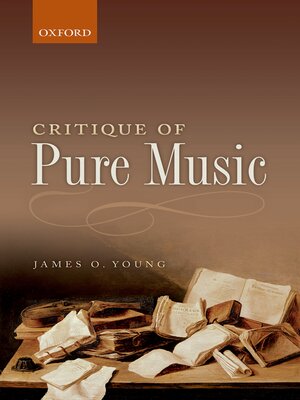
Sign up to save your library
With an OverDrive account, you can save your favorite libraries for at-a-glance information about availability. Find out more about OverDrive accounts.
Find this title in Libby, the library reading app by OverDrive.



Search for a digital library with this title
Title found at these libraries:
| Library Name | Distance |
|---|---|
| Loading... |
Why do we value music? Many people report that listening to music is one of life's most rewarding activities. In Critique of Pure Music, James O. Young seeks to explain why this is so. Formalists tell us that music is appreciated as pure, contentless form. On this view, listeners receive pleasure, or a pleasurable 'musical' emotion, when they explore the abstract patterns found in music. Music, formalists believe, does not arouse ordinary emotions such as joy, melancholy or fear, nor can it represent emotion or provide psychological insight. Young holds that formalists are wrong on all counts. Drawing upon the latest psychological research, he argues that music is expressive of emotion by resembling human expressive behaviour. By resembling human expressive behaviour, music is able to arouse ordinary emotions in listeners. This, in turn, makes possible the representation of emotion by music. The representation of emotion in music gives music the capacity to provide psychological insight-into the emotional lives of composers, and the emotional lives of individuals from a variety of times and places. And it is this capacity of music to provide psychological insight which explains a good deal of the value of music, both vocal and purely instrumental. Without it, music could not be experienced as profound. Philosophers, psychologists, musicians, musicologists, and music lovers will all find something of interest in this book.







